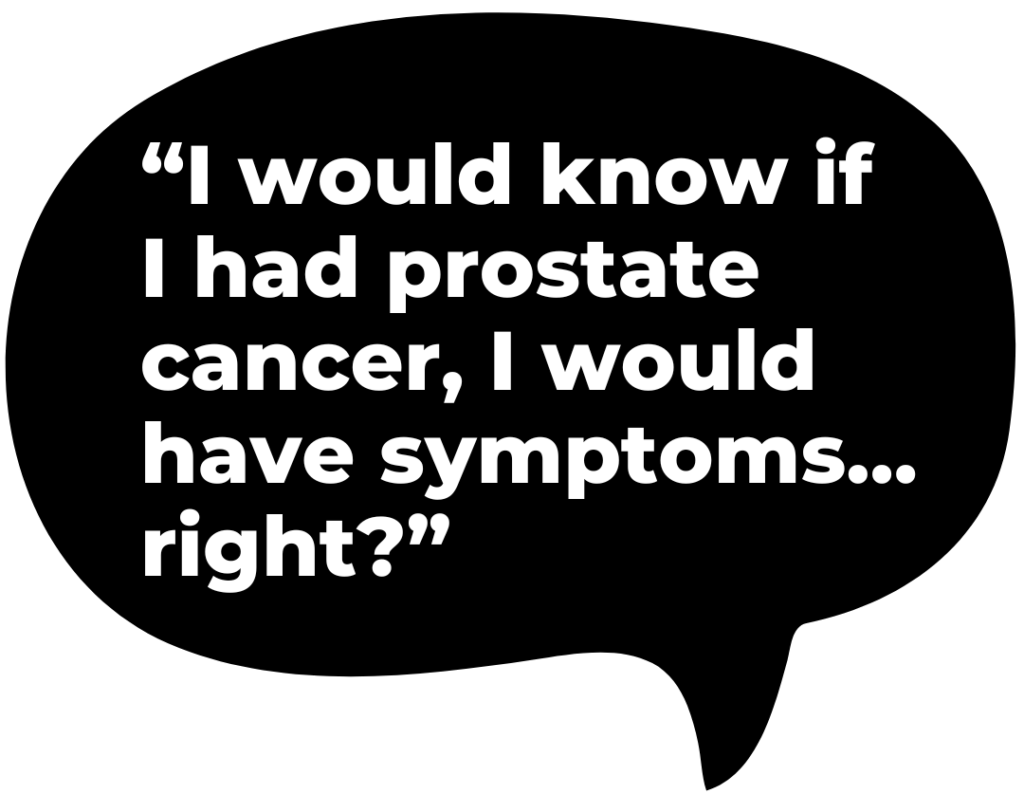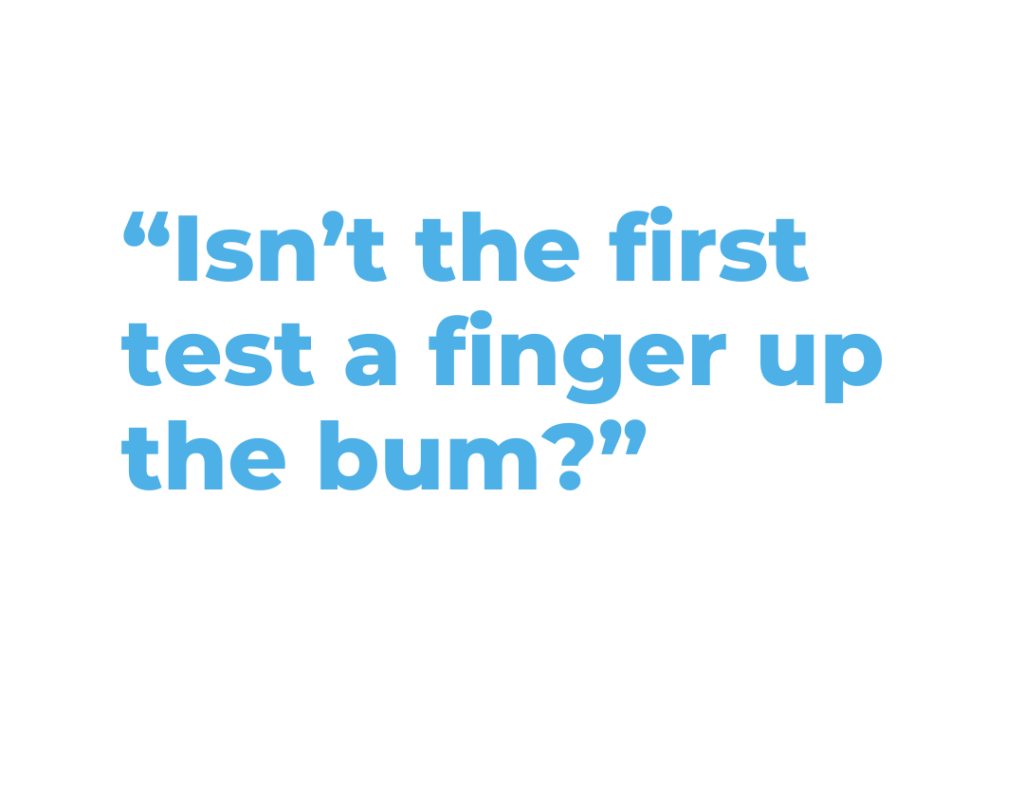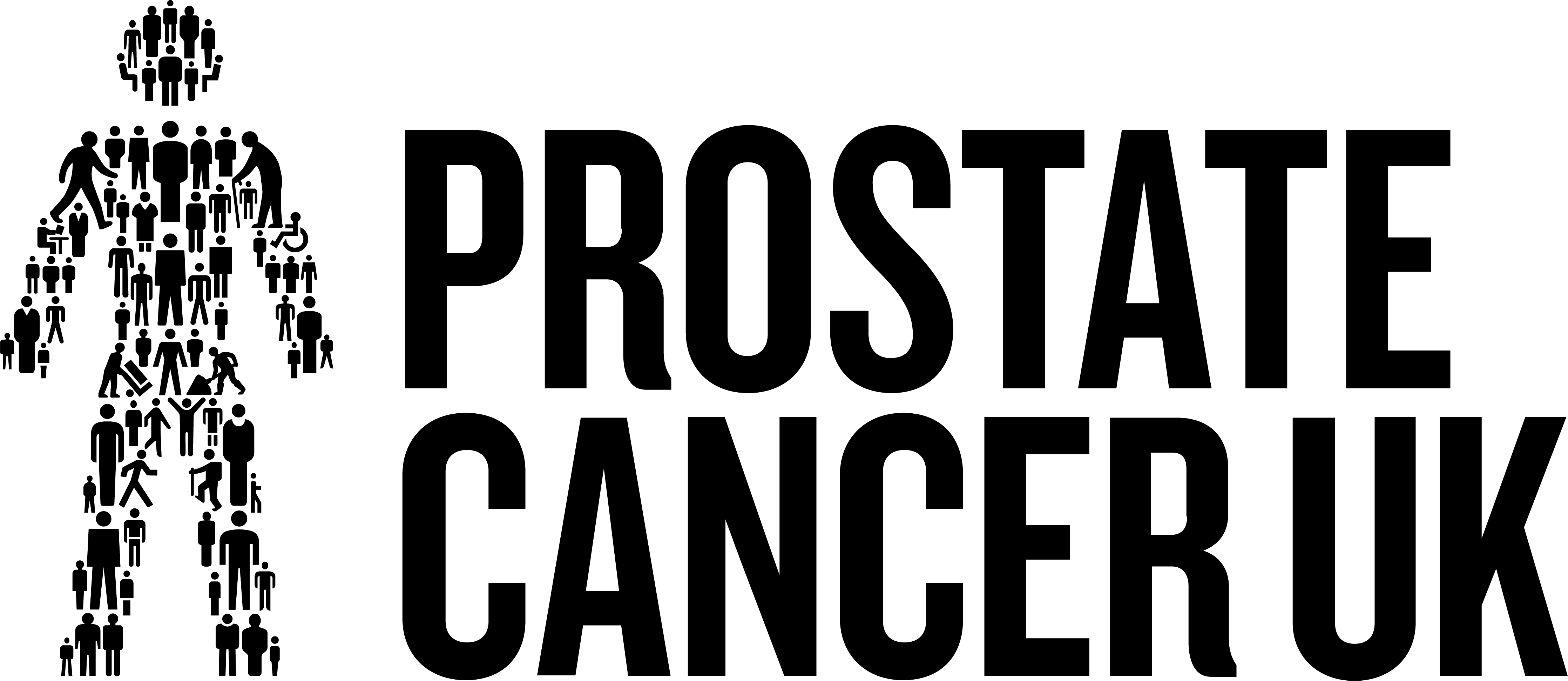So…
What on earth is
a prostate?!
Men’s health can be a minefield. Everyone has gaps in their knowledge and every one of us probably believes something that just isn’t true.
Between a lack of core knowledge and the myths and misinformation that circulate in the pub, at work, online, and with family and friends, it can be hard to know what to believe, and even harder to know what to do about it: “What does a prostate do?” “Am I too young for prostate cancer?” “Do I get a finger up the bum when I’m tested?”
The reality is, the most common cancer in men starts in a place half know next to nothing about. It is time to change that.
1 in 4
Black men will get prostate cancer
that is double the risk of other men.
So for Men’s Health Week and Father’s Day, Dope Black Dads has partnered with Prostate Cancer UK to give more Black men and dads the power to navigate the most common cancer in men, by busting common myths and misconceptions, and sharing clear and accurate health information to help our dads, brothers, sons and mates make more informed choices.
Take Prostate Cancer UK’s 30-second risk checker and share it with the men you love
Prostate cancer is the most common cancer in men, but it is treatable if caught early. However, only around a third (36%) of Black men surveyed* realise early stage prostate cancer often has no symptoms… putting tens of thousands at risk of late diagnosis. This is why it’s important to know your risk. Catching prostate cancer early saves lives.
Why
is this important?
Myths and misinformation around men’s health and prostate cancer specifically can make it hard for men to know what to do to look after themselves, and stop them making informed choices.
To understand what Black men across the UK knew, and where we could help fill in the gaps, Prostate Cancer UK conducted a survey* around the most common misconceptions. They found:

Less than half of Black men surveyed
realised prostate cancer was the most common cancer in men

Over half (55%)
do not know where their prostate is

There are three main prostate cancer risk factors, which are things you can't change. These are:
Getting older – it mainly affects men aged 50 or Black men over 45
Having a family history of prostate cancer
Being Black.



Almost two thirds (65%) of Black men surveyed in the UK believe they will be invited for a test by their GP
which is not the case as there is currently no screening programme for prostate cancer in the UK.
You can check if you are at higher risk of prostate cancer now. It takes 30 seconds, is anonymous, and it might just save your life
Prostate Cancer
faq’s
We sat down with Prostate Cancer UK Specialist Nurse Susan Piper to get an expert’s view on the facts we need to know abut prostate cancer, and the myths we need to bust.
What on Earth is a prostate?
The prostate is a small gland – about the size and shape of a walnut – that sits underneath your bladder. Its main job is to help make semen. Prostate cancer develops when cells in the prostate start to grow in an uncontrolled way. Although some prostate cancers grow so slowly that they never cause any problems, some grow more quickly and need treatment to stop them spreading.
I’m a Black man – should I get checked out?
Black men have double the risk of prostate cancer and develop it at a younger age. That’s why we strongly recommend they talk to their GP about a regular PSA blood test from the age of 45 – and if you’re worried about prostate cancer, you can speak to a GP from any age.
Prostate Cancer UK’s 30 second online risk checker can help you understand your risk and what to do next
Won’t I just be invited for a test?
Unfortunately, we don’t currently have a screening programme for prostate cancer in the UK, so you won’t be invited for a test once you become higher risk. That’s why it’s so important to know your risk and speak to your GP if you have any concerns.
Shouldn’t I just wait for symptoms then? I don’t want to bother my GP.
If prostate cancer is caught early, there’s a good chance it can be cured. But most men with prostate cancer don’t have any symptoms until the cancer has already spread, which is why it’s still important not to wait to speak to your GP – even if you feel completely fine.
Diagnosing cancer early is always a big priority for the NHS and they’ve even backed a national campaign asking men to come forward, so you should never be afraid to speak to them about your health.
If you do notice any symptoms, such as changes in the way you pee, it’s a good idea to get checked out. While it may simply be a common problem like an infection, it could be a sign of prostate cancer.
I’m really healthy and active – will that stop me from getting prostate cancer?
Anyone can get prostate cancer, and as we’ve already covered – you’re unlikely to experience any symptoms until the cancer has already progressed and become incurable. While maintaining a healthy lifestyle is always a good idea, it’s more important to be aware of the risk factors – which are things you can’t change – like age, family history and ethnicity.
Aren’t I too young for prostate cancer?
Prostate cancer is often thought of as an ‘old man’s disease’, but while your risk of prostate cancer does increase as you get older, you’re considered at higher risk from the age of 50 – or 45 if you’re Black or have a history of prostate cancer in the family.
I thought prostate cancer wasn’t very dangerous – is it worth worrying about?
Over 12,000 men die from prostate cancer each year, and it is the most common cancer in men, so it’s definitely not something you can afford to just ignore.
The good thing is that if it’s caught early enough it’s treatable, so it pays to learn more about your risk and what you can do about it.
What will happen when I speak to my GP? Will I get a finger up the bum?
There is no single test to diagnose prostate cancer, but the first step is usually the PSA blood test. If your PSA level is raised, you might be referred for other tests such as an MRI scan or biopsy.
Some doctors will also offer a physical prostate examination, called a Digital Rectal Exam (or DRE), but it’s important to remember that you can still be checked for prostate cancer without this test and it’s your choice whether or not you have it done.
Why are Black men at higher risk of prostate cancer?
We don’t know exactly why Black men are at higher risk of prostate cancer, but we do think it’s likely to be linked to genes, which are passed down from our grandparents to our parents to us.
We urgently need to know more, which is why we’re funding the PROFILE study in partnership with The Movember Foundation. Researchers are looking at the genes of men of African and Caribbean descent to see if they can learn to predict prostate cancer risk. This should help us develop better tests that can catch prostate cancer earlier and save more lives. Find out more and learn how to get involved at prostatecanceruk.org/riskresearch
If I do one thing, what should it be?
Too many people know next to nothing about the most common cancer in men. So, if you only do one thing this Men’s Health Week, separate the fact from the fiction today and take Prostate Cancer UK’s online risk checker to understand your risk and what you can do about it.
Check your risk today. It could save your life. Visit Prostate Cancer UK’s risk checker – it takes 30 seconds.
Take Prostate Cancer UK's 30-second risk checker and share it with the men you love
Got more Questions?
Get the facts with Prostate Cancer Uk’s Specialist Nurses.
Hear from the experts about the most common prostate cancer misconceptions.
* This online survey of 2,000 UK men (with a quotas of 200 from the North-West, Midland, Scotland and London respectively and 500 black respondents) was commissioned by Prostate Cancer UK and conducted by market research company OnePoll, in accordance with the Market Research Society’s code of conduct. Data was collected between 21/04/2023 and 27/05/2023. All participants are double-opted in to take part in research and are paid an amount depending on the length and complexity of the survey. This survey was overseen and edited by the OnePoll research team. OnePoll are company partners of the MRS and has corporate membership to ESOMAR. *This data was collected from a different survey with the same demographic between 12/05/2023 and 18/05/2023.



